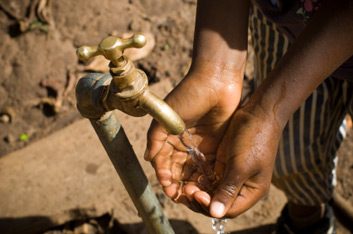News: What is cholera anyway?
Reports that a cholera outbreak is threatening the people of Haiti are dominating the news. But what is cholera, and

Reports that a cholera outbreak is threatening the people of Haiti are dominating the news. But what is cholera, and what makes it a serious illness?
The World Health Organization (WHO) website describes the disease as an acute intestinal infection caused by ingestion of food or water contaminated with the bacterium called Vibrio choerae.
Once infected, a person may experience symptoms such as severe diarrhea and vomiting, which can lead to serious dehydration causing death. Cholera is transmitted through unsanitary conditions and contaminated drinking water. Symptoms are treated by replacing the fluid and electrolytes lost through diarrhea. Perhaps that might seem simple enough to those of us who live in Canada, but for people who do not have access to clean drinking water, getting enough fluids while ill poses a very serious challenge.
The WHO indicates that many people who become infected with cholera don’t develop any serious symptoms. However, the disease poses a threat to Haitians because of the poor sanitary conditions that exist in the tent camps that many people now call home since the January 2010 earthquake ravaged the country’s capital, Port-au-Prince.
The BBC is reporting that the cholera death rate in Haiti is currently slowing down (256 people are known to have died from the disease), but aid agencies remain on alert.
While deaths from cholera in Haiti are creating headlines today, many other countries are also suffering from the disease. Nigeria, for example, reported more 1,500 deaths from cholera this year alone.
How can you help? Send donate to aid organizations on the front lines, such as Médecins Sans Frontiéres.
Related:
‘ 5 ways giving is good for your health
‘ Diarrhea




